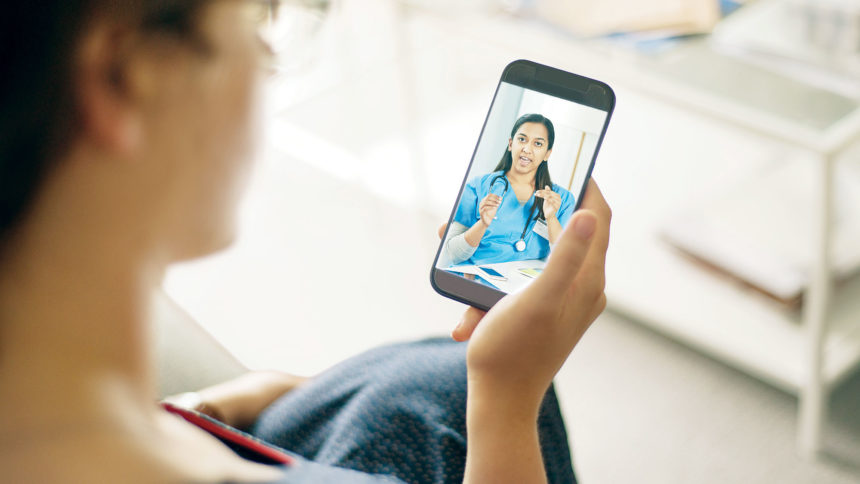
Editor’s note: This story has been updated from its original form.
The federal government removed Medicare restrictions for telehealth coverage nationwide Tuesday while also temporarily relaxing HIPAA obligations for providers. The latter opens the door for doctors’ use of Skype, FaceTime and other commonly used applications that are not public facing to enhance access to beneficiaries.
The sweeping moves are in response to the novel coronavirus outbreak, which typically thrives on person-to-person contact and has proven deadliest for elderly individuals. The virus has been found at an increasing number of nursing homes, including one in suburban Chicago, where 22 cases were reported Tuesday. West Virginia became the 50th state to register a COVID-19 case Tuesday, with federal officials predicting that the number of infected people will continue to swell.
The temporary telemedicine coverage expansion was announced by Centers for Medicare & Medicaid Services Administrator Seema Verma in a mid-day White House news conference.
Authorities noted that private insurers also have been asked to expand telehealth coverage. In addition, the HHS Office of Inspector General is providing flexibility for healthcare providers to reduce or waive cost-sharing for telehealth visits paid by federal healthcare programs.
“The impact of this historic action simply cannot be overstated,” Verma said at a press briefing late Tuesday. “In an emergency, those on the front lines, should not have to worry about federal rules and red tape, hamstringing them when they need flexibility above all else.”
A CMS fact sheet on the announcement can be found here.
As a vehicle for the expansion, CMS is widening Medicare’s telehealth benefits under the 1135 waiver authority and the Coronavirus Preparedness and Response Supplemental Appropriations Act. Until Tuesday’s nationwide expansion, coverage was allowed only for rural providers, existing patients and a few others. Clinicians will be paid for a wide range of telehealth services, and at the same rate as in-person treatments, dating back to March 6.
“Providers, such as doctors, nurse practitioners, clinical psychologists and licensed clinical social workers will be able to offer telehealth to Medicare beneficiaries,” Verma said.
Verma and a spokesman noted numerous provider questions about outside maintenance workers and asked an agency spokesman to clarify further.
“We’re trying to focus more on those healthcare workers who have a direct need to enter the facility and interact with specific patients,” the spokesman said. “Other services” such as maintenance workers who might need to fix air-conditioning or a refrigerator would be allowed in, provided they don proper personal protective equipment, he added.
Therapists are mentioned only in a fact sheet on the new guidance as allowable for reimbursement under “e-visits,” which do not include treatments — and not at all under the “Medicare telehealth” or “virtual visits” categories.
“Our current situation under COVID-19 shows how valuable it would be to have rehabilitation therapists on this list,” Cynthia Morton, Executive Vice President of the National Association for the Support of Long Term Care, told McKnight’s. “NASL and others have advocated to Congress for many years for this. It is our hope that CMS would waive this and allow therapists to also provide services.
“Overall, these new waiver authorities are a good expansion,” she added, “but we believe we are going to need more as this virus expands and we face additional challenges trying to provide care with the resources we have.”
A Frequently Asked Questions document about CMS’s telehealth guidance can be found here.
PPE shortage spurs call for donations
Mark Parkinson, president and CEO of the American Health Care Association/National Center for Assisted Living, is calling on other providers to donate personal protection equipment, like masks and gowns, to skilled nursing and assisted living facilities.
“It is critically important that any healthcare provider who has excess masks, gowns and gloves, to turn those over to nursing homes and assisted living facilities who desperately need them,” Parkinson said Tuesday in advance of a conference call Wednesday on the issue.
Demand has increased following supply disruptions in China, which is where the coronavirus originated, and the ramping up of the virus in the U.S., AHCA noted.
In other coronavirus-related news Tuesday:
- As of Tuesday evening, there were a total of 4,226 COVID-19 cases in the United States, with 75 deaths, according to the Centers for Disease Control and Prevention.
- The Centers for Medicaid and Medicare Services has released a virtual toolkit to help patients and providers stay up-to-date on its materials on COVID-19. It has released 31 guidance documents aimed at assisting frontline providers thus far, an agency official said Tuesday.
- One of the more heartwarming video clips circulated Tuesday by the Ohio Health Care Association on Twitter offers one potential solution for brightening segregated seniors’ spirits. It shows a pair of children in Ohio who have been holding impromptu cello concerts for elderly neighbors as the coronavirus keeps elderly in social isolation.
- Another inspirational clip notes how NASCAR team Wood Brothers Racing announced it’s raising money to purchase tablets for nursing homes to help connect residents with their families amid the pandemic.
- Still another video shared shows Presbyterian Homes residents playing bingo spaced out in a long hallway, sitting in front of their respective room doors as workers vocally relay numbers called out, up and down the corridor.




